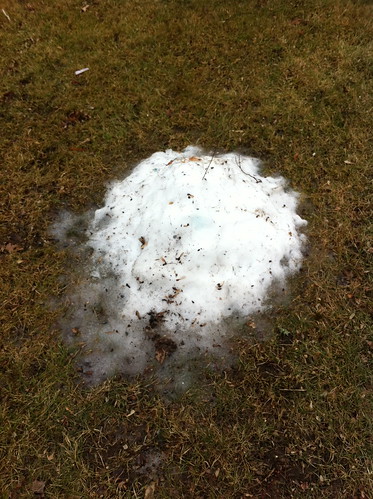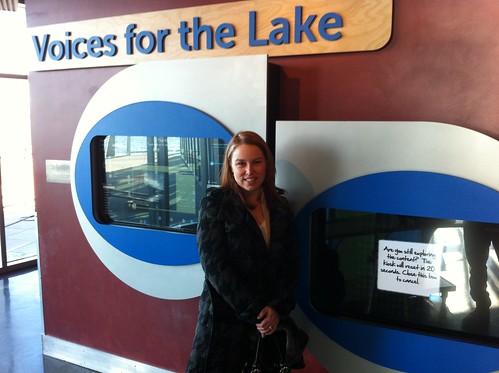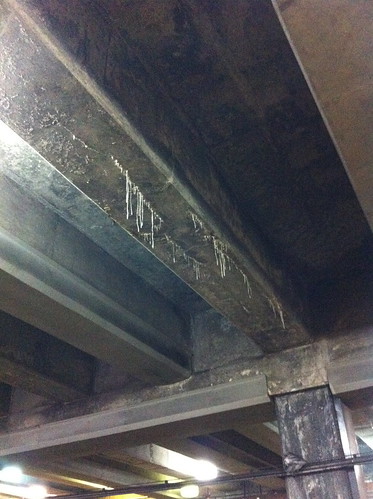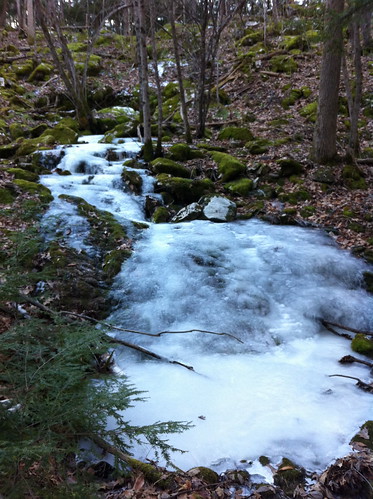The
January Thaw is a well-known weather event that occurs during most winters. After weeks or even months of almost entirely below freezing temperatures, the weather warms for a couple of days, usually around this time of year, it often rains, and all of the life in the forest (and the city) that has trouble getting through the winter gets a little breather. The phenomena is strong enough to
show up as a blip on average temperature charts in some areas, a slight warming in the coldest part of the year.
Last year the most significant January thaw happened at the start of the month. The year before,
the thaw came as a howling gusty downpour from the south, temperatures in the 50s, and enough rain to form ice jams. Countless other January thaws are remembered in stories told by the old-timers. Whether you hate them (due to ruined snow or ice jams) or love them (if you hate the cold), these thaws are a part of Vermont's weather and hydrology.
This January's thaw, though, is a tricky one to a put a finger on. Why? We've already had several thaws, complete with rain and temperatures reaching above 40. We've also had several respectable if not unusual cold snaps, with temperatures below zero throughout the state. In fact, just two days ago I was up in Hyde Park and the temperature got down to -16. The Lamoille River was steaming as if it was boiling, because the contrast between flowing water and subzero temperatures was so great. Now? It's in the mid 30s, the temperature is still rising, and the radar (and my earlier walk by the river) tells me it will be raining soon. The rain will not be able to soak into the ground (despite the several thaws of this month, the ground is frozen deeply due to lack of snow cover, and will not thaw from this warm spell) and the river will undoubtedly rise. Although 36 hours of temperatures in the mid to upper 30s is not enough to melt all the ice formations around the river, the raising water will be enough to rip much of the ice loose and perhaps create some small ice jams. This storm isn't nearly as strong as the one two years ago, so I doubt any ice jams will be big enough to cause problems.
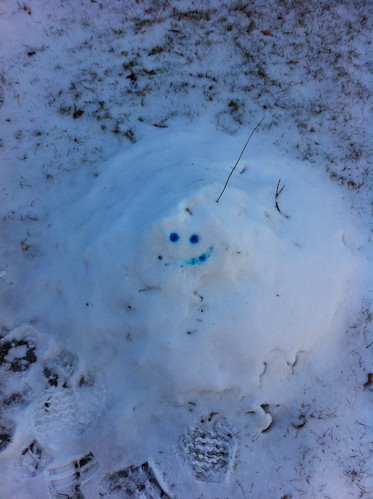
(above: the little Snow Monster, more on its fate to follow...)
